Trojan Horse Summer School 2017
”CLIMATE CHANGE OF WORK”
August 15–24,
With Brave New Alps, Nick Axel, Johanna Jõekalda and Aapo Korkeaoja.
Bengtsår island, Hanko, Finland
59°53’54.7″N 23°06’30.8″E
The second season of the Trojan Horse summer school begins with a burst of questions which circulate around the topic of work.
What does work mean? Who has the power to decide what is counted as work?
How can we re-organise our day to day life so that it would create new structures of feeling and meaning as well as new structures of work?
How can we overturn the fetish of the individual creator and express the sensations of collective life?
Can work be therapy? What would that even mean, can that be anyhow meaningful to others? Does that matter?
What do I actually do when I do what I do? Is it work? Is my work meaningful just for a few privileged countries or social groups?
So, what does the Climate Change of Work mean?
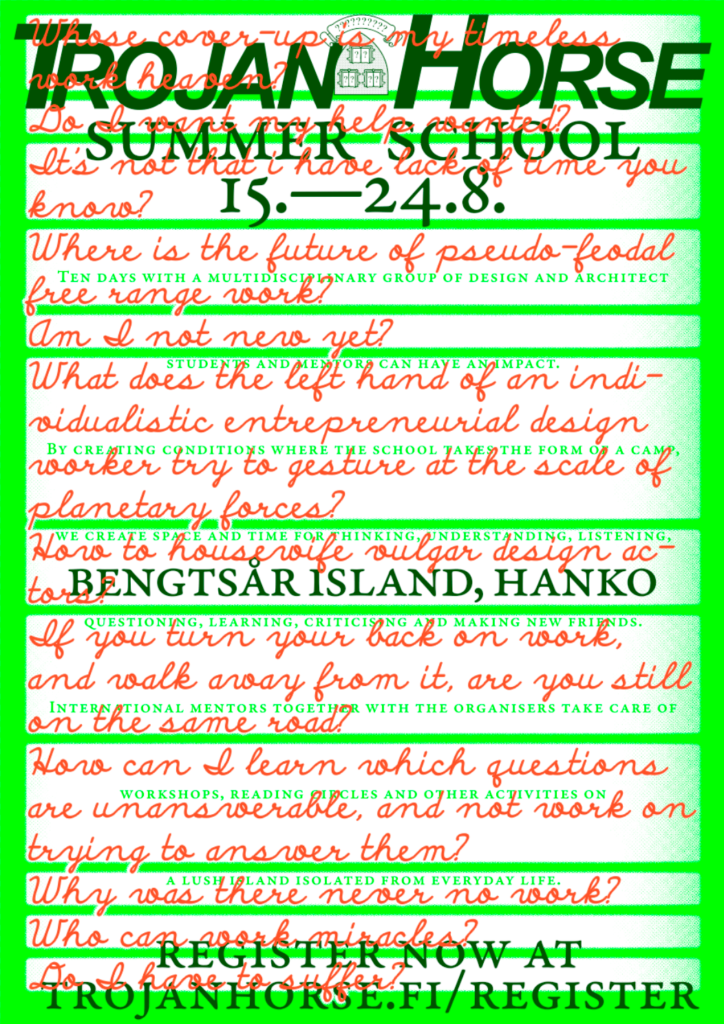
We recently went to see the Signals from the Periphery graphic design exhibition at the Tallinn Art Hall. In between objects, images, tools and music, the exhibition also displayed alternative design spaces, -events and -projects from around the world. What these initiatives had in common was that they were initiated out of frustration that there was no place or platform to do the kind of work these designers found meaningful and fulfilling. This is also one of the reasons why we started the Trojan Horse summer school.
How is it possible that so many people feel that there is so much design work that feels more and less unnecessary or unfulfilling, and so little that would take us towards the kinds of worlds we would like to live in?
How is it possible that work occupies more and more of our time, even when we live in increasingly automated societies, where many human necessities could be taken care of with very little actual human labour?
Why do we risk our mental and physical health working on our laptops, staring into screens inside cubicles, when we would have all the technology to use the space and our bodies much more fluidly?
How is it possible that we value efficiency and modesty and rationality so much, when there has never been so much surplus energy (and time) available to us to waste?
How does this affect the kind of knowledge and the kind of work we produce?
What are we actually doing?
And what does this have to do with climate change?
Climate is the history of weather. Where weather is something we can observe and feel here and now, climate is something we cannot sense directly. “Climate is the average state of the atmosphere over periods of years, decades, centuries, and more.” Climate becomes real as graphs and excel sheets. “Everything we know about the world’s climate—past, present, and future—we know through models.” In order to model climate we need global data, and to have global data we need different measurement devices, standardized procedures, satellites orbiting our planet and many other inhuman things, which sense our world very differently from how we humans do, based on our partial and limited local perspectives.
And climate, of course, changes all the time. The biosphere of our planet Earth has experienced many dramatic changes in its four billion years of history. What we call climate change today is something different. Something that will make our own existence threatened. Something which is already causing mass extinction of plants and animals, soil depletion, mass migration and wars over natural resources. That’s why what we now call climate change is something inherently political, it’s something related to the work we have done, and work we think we should be doing. If our collective work (utilising the energy released from burning fossil-fuels) has changed our planet’s climate once, it might make sense to rethink what we call work in order to transform both our world and ourselves.
What does it even mean to work? Is work anything that brings you money? Is it what you do during your days? Or, is work something that in some sense builds a common good? Something that someone forces you to do? Something you just have to do? Something that creates change? Something that creates new knowledge? A quest to find a world worth working towards?
In her book The Human Condition, Hannah Arendt writes about three different activities: labour, work and action, as equally necessary to a complete human life. “Labor is human activity directed at meeting biological (and perhaps other) necessities for self-preservation and the reproduction of the species. Because these needs cannot be satisfied once and for all, labor never really reaches an end. Its fruits do not last long; they are quickly consumed, and more must always be produced.” … “Work, unlike labor, has a clearly defined beginning and end. It leaves behind a durable object, such as a tool, rather than an object for consumption. These durable objects become part of the world we live in. Work involves an element of violation or violence in which the worker interrupts nature in order to obtain and shape raw materials. For example, a tree is cut down to obtain wood, or the earth is mined to obtain metals.” … “Action is the means by which we distinguish ourselves from others as unique and unexchangeable beings. With humans, unlike with other beings, there is not just a generic question of what we are, but of who each is individually. Action and speech are always between humans and directed toward them, and it generates human relationships.” For Arendt knowledge is acquired not simply by thinking, but by making; working, labouring and acting with the products of previous human work.
How do we deal with the violence related to our work? How do we housewife our climate? How do the tools we use change our bodies? How can we work out what the infrastructure around us wants? What should we be doing with our designer skills, designer knowledge and design tools?
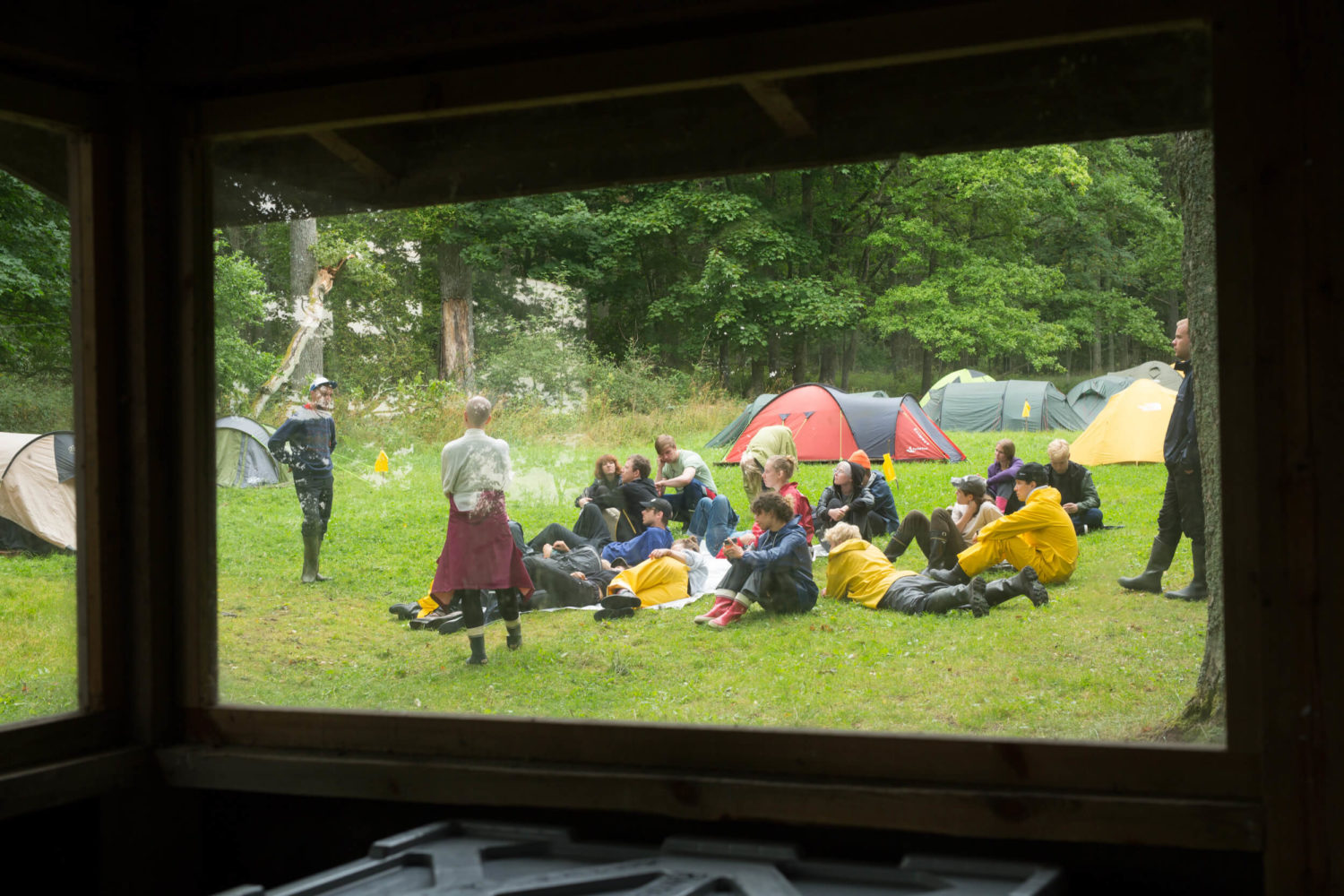
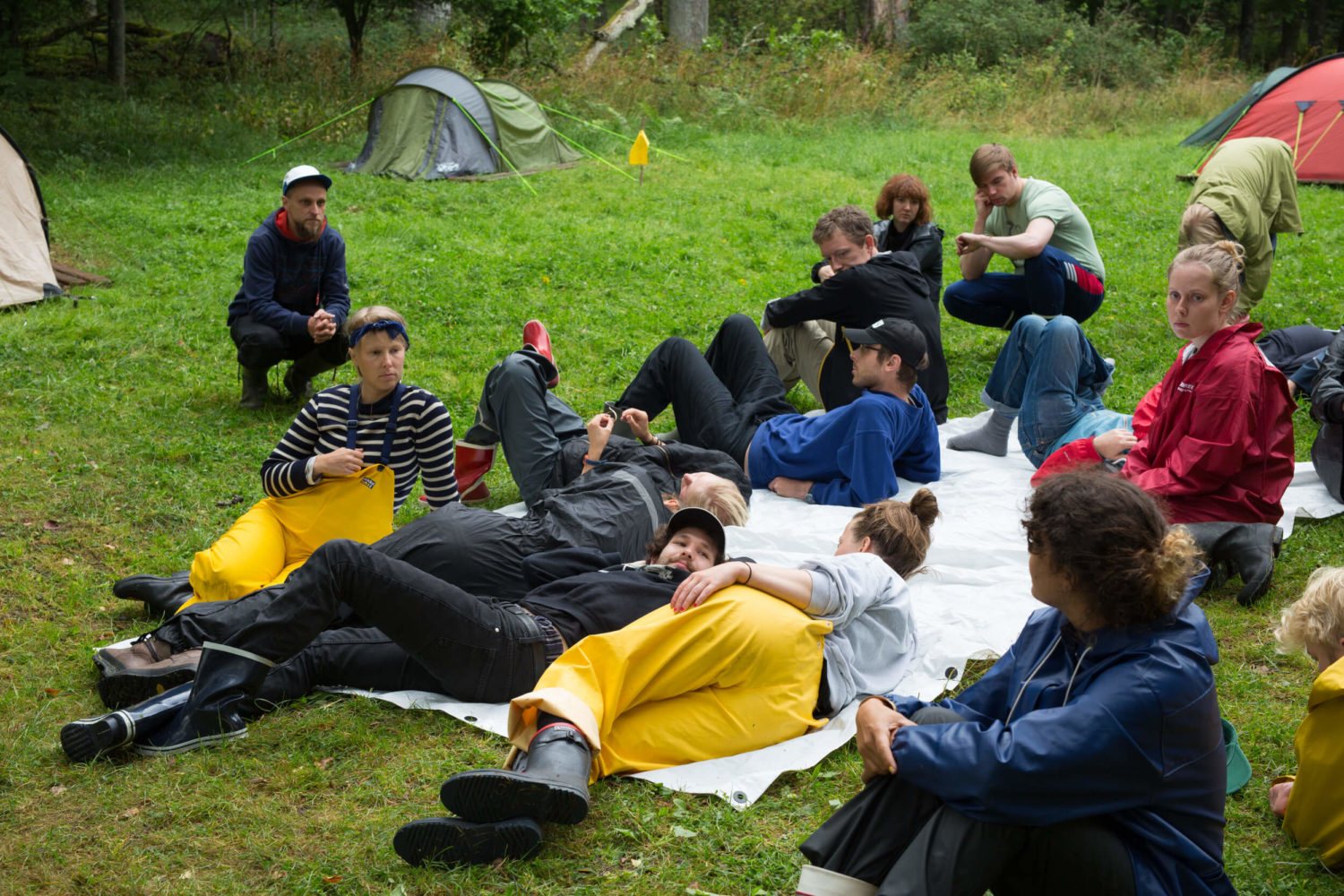
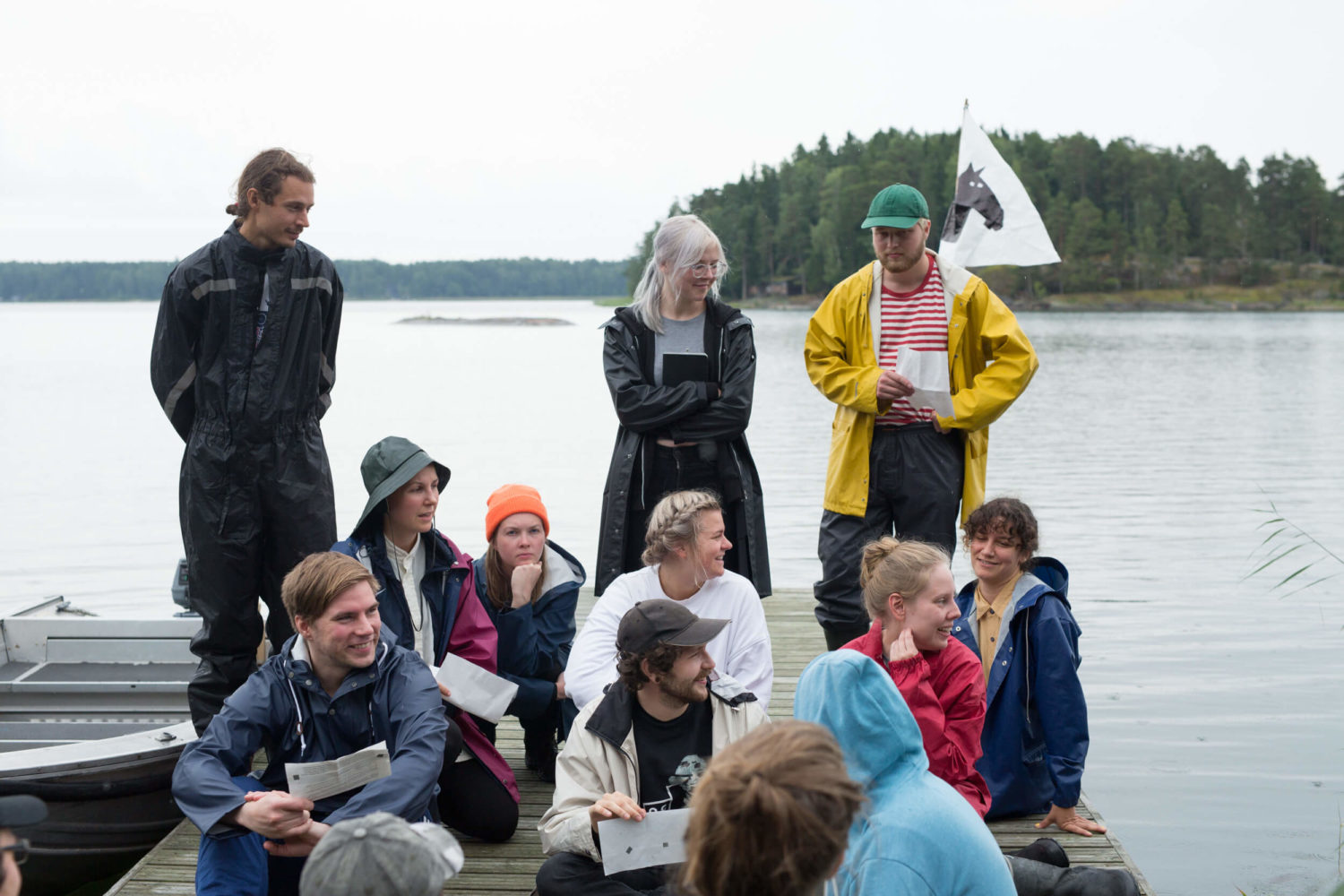
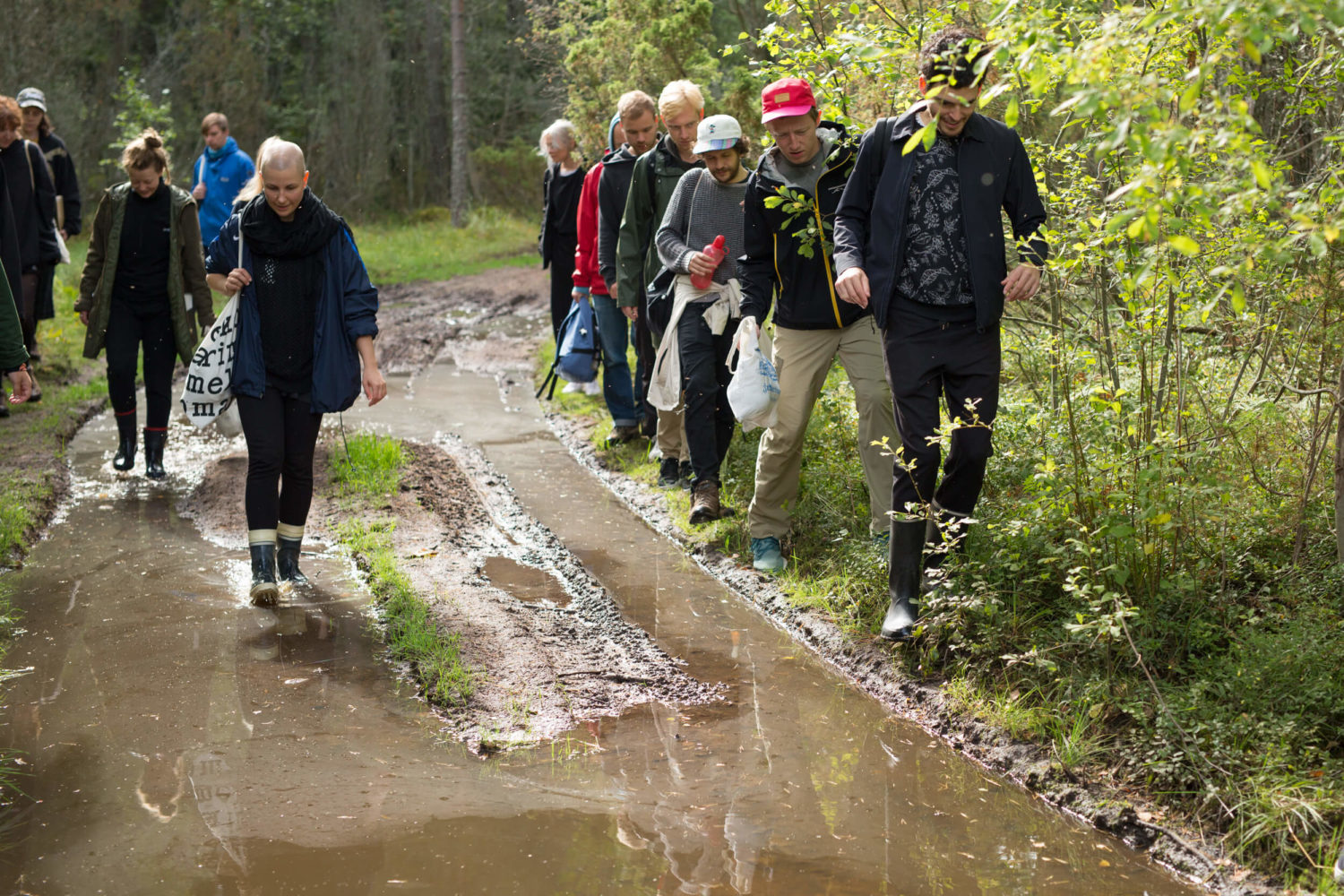
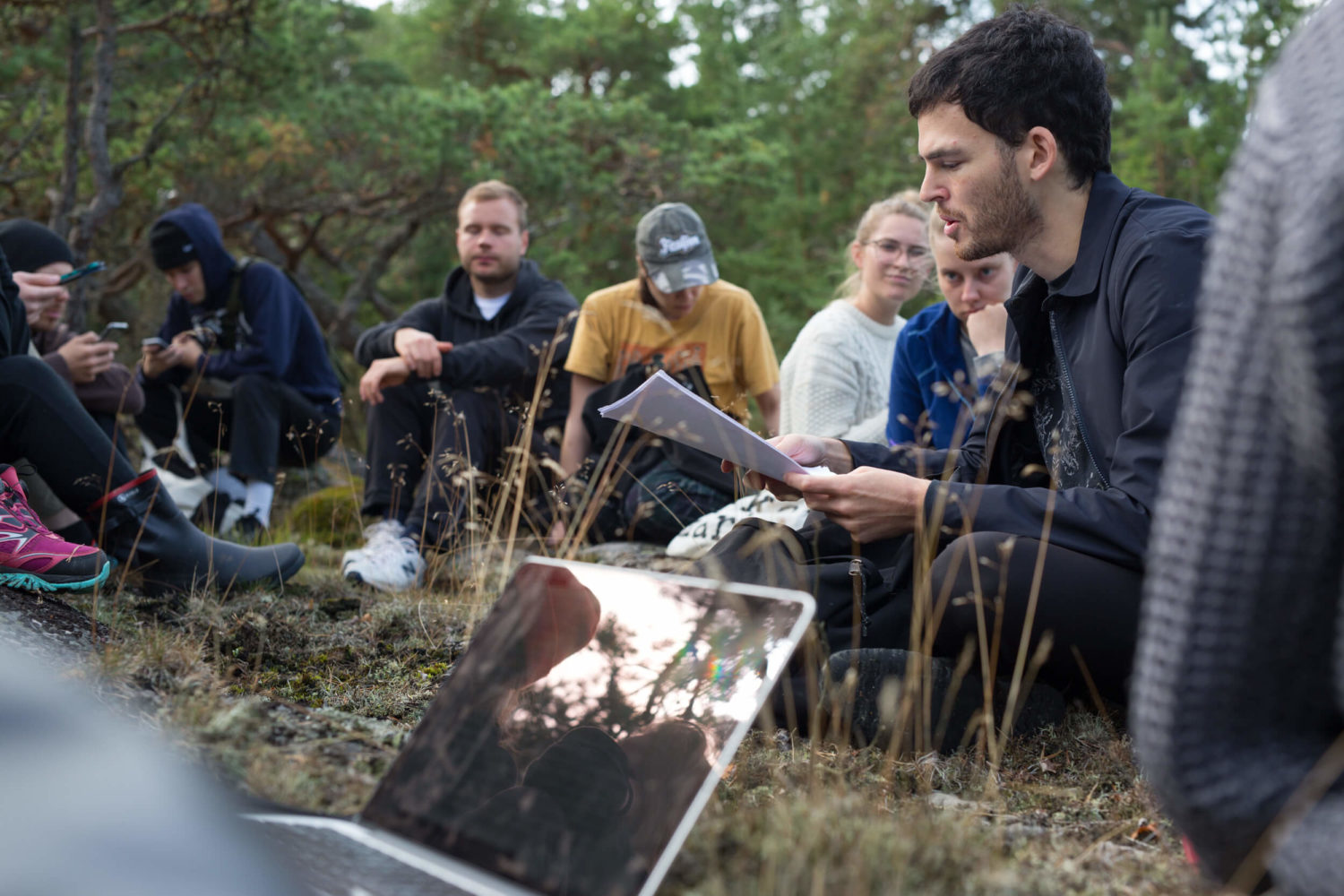
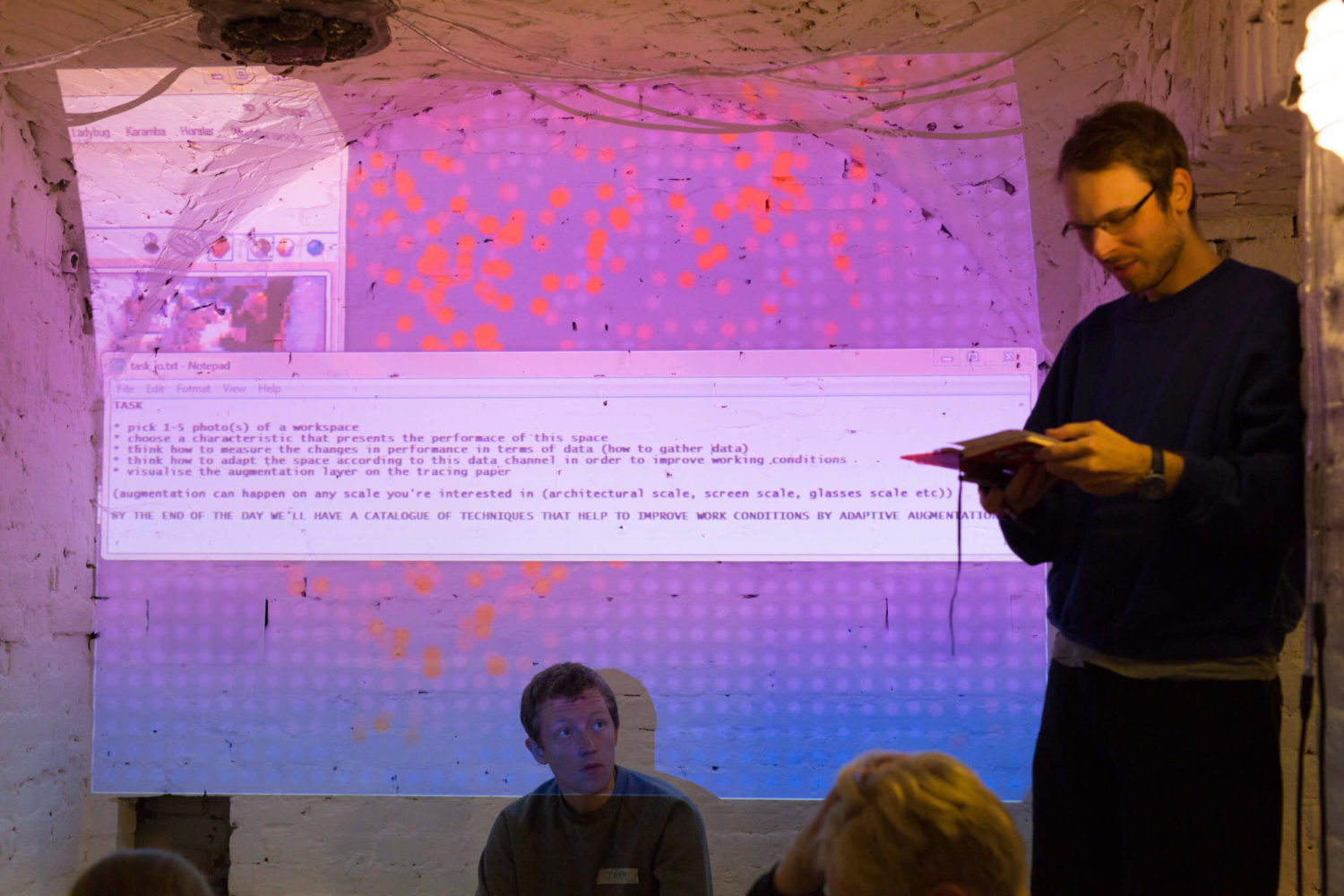
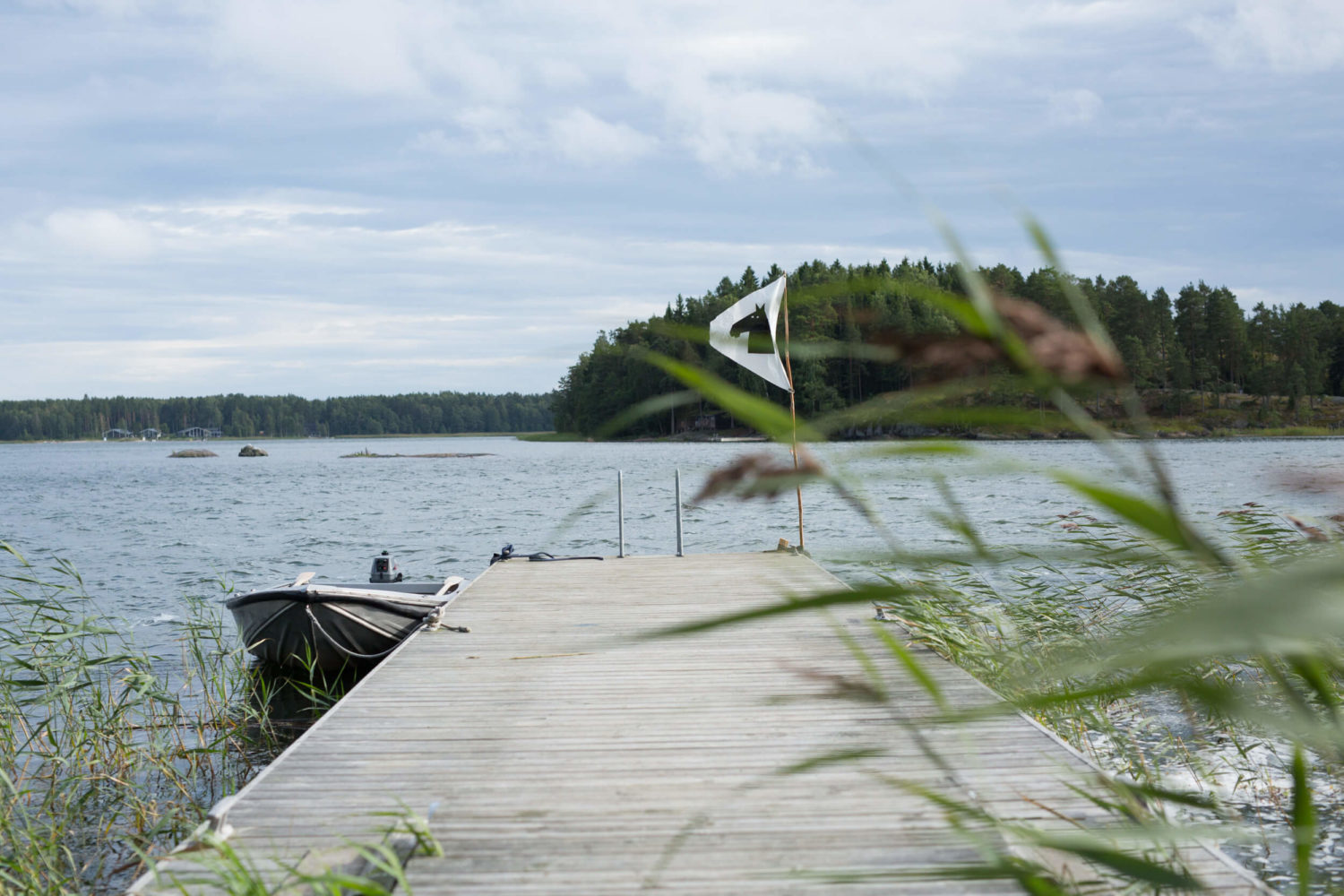
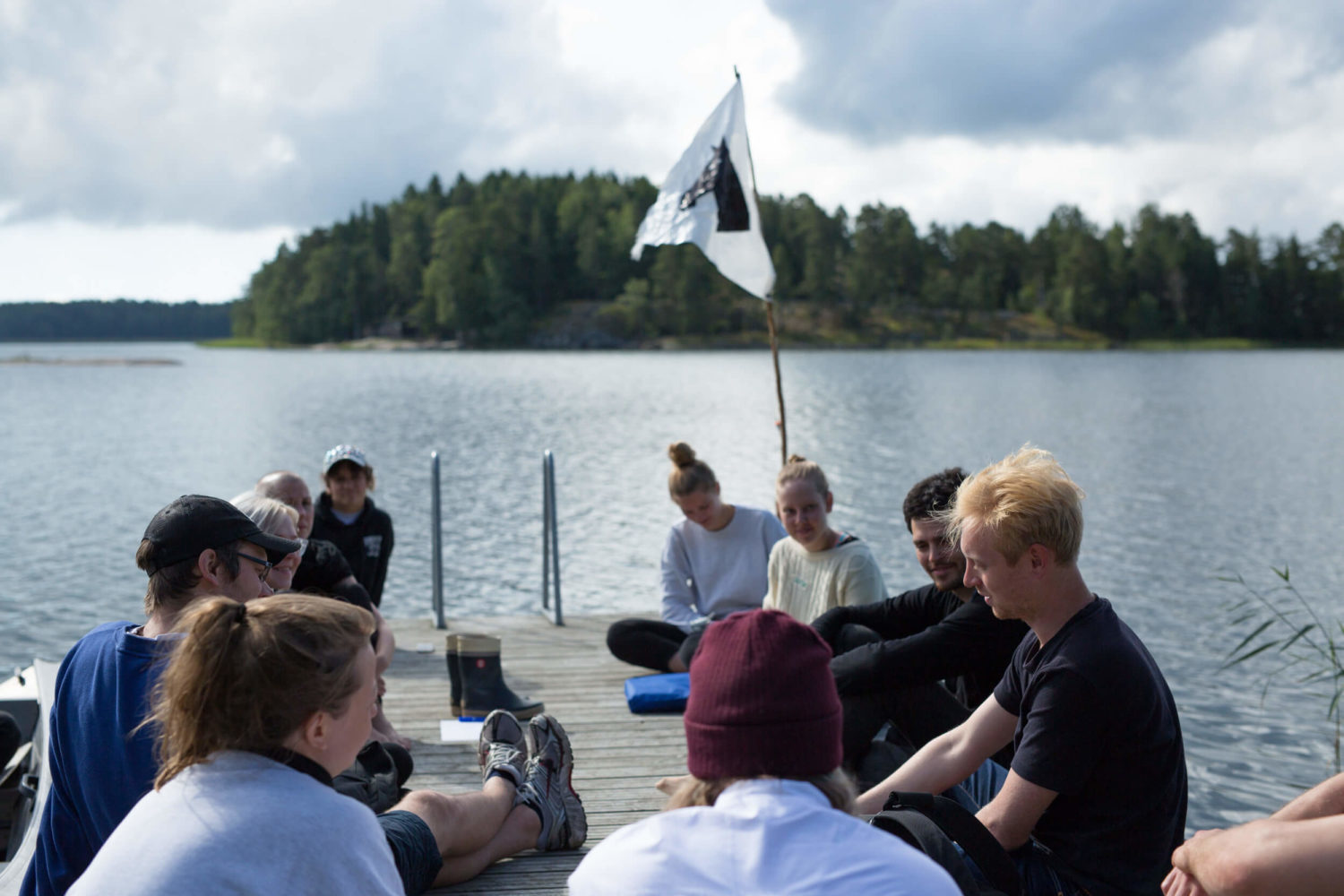
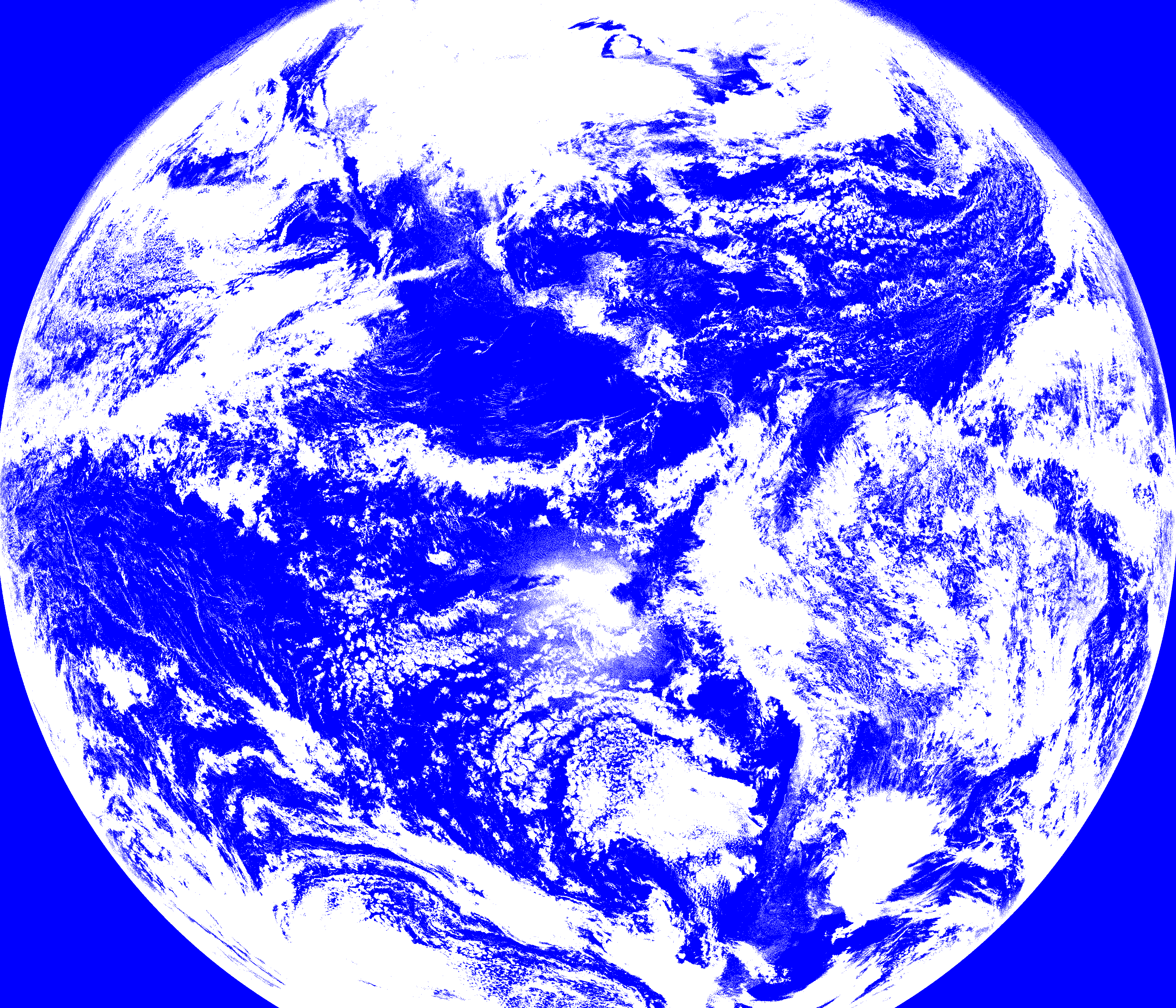
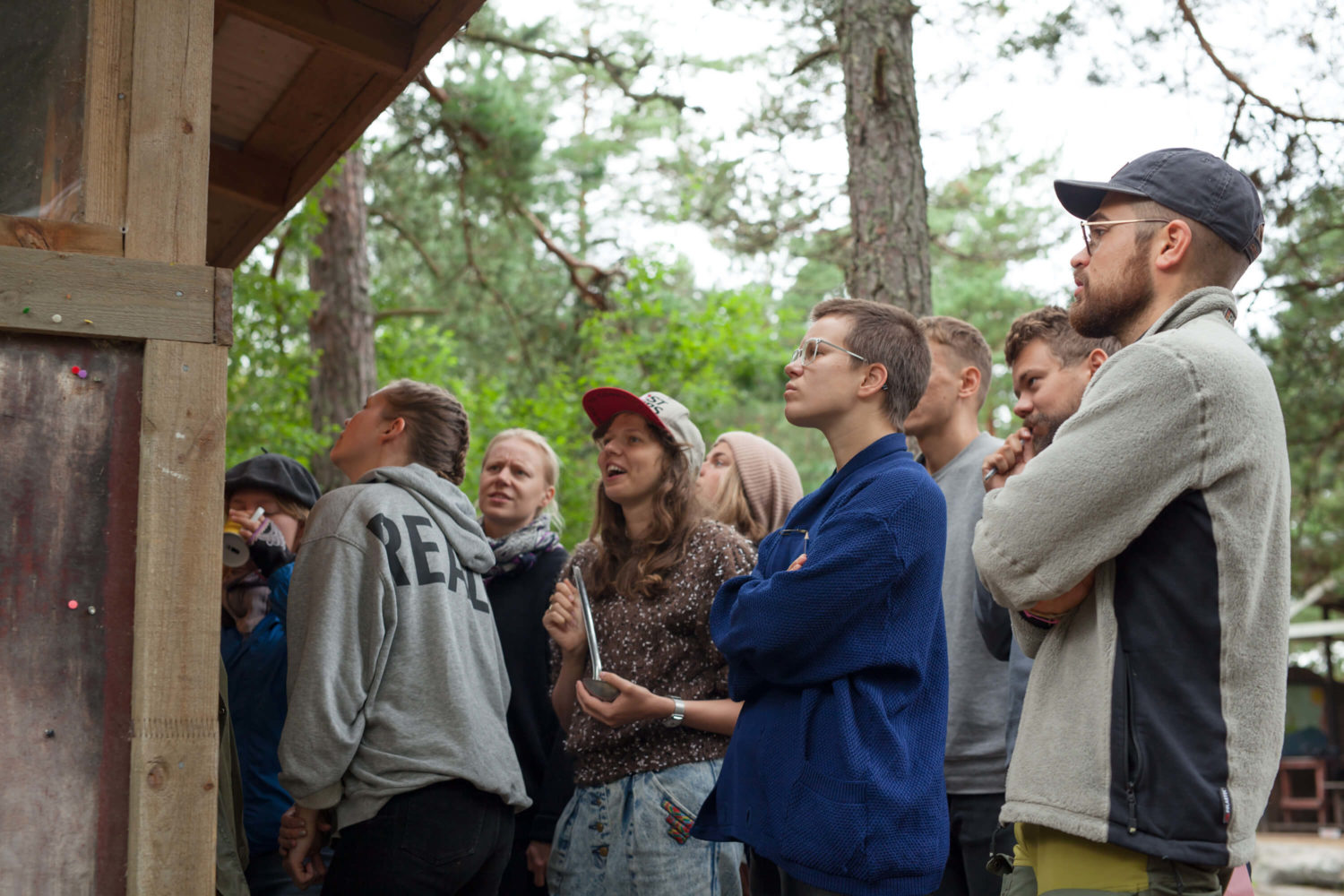
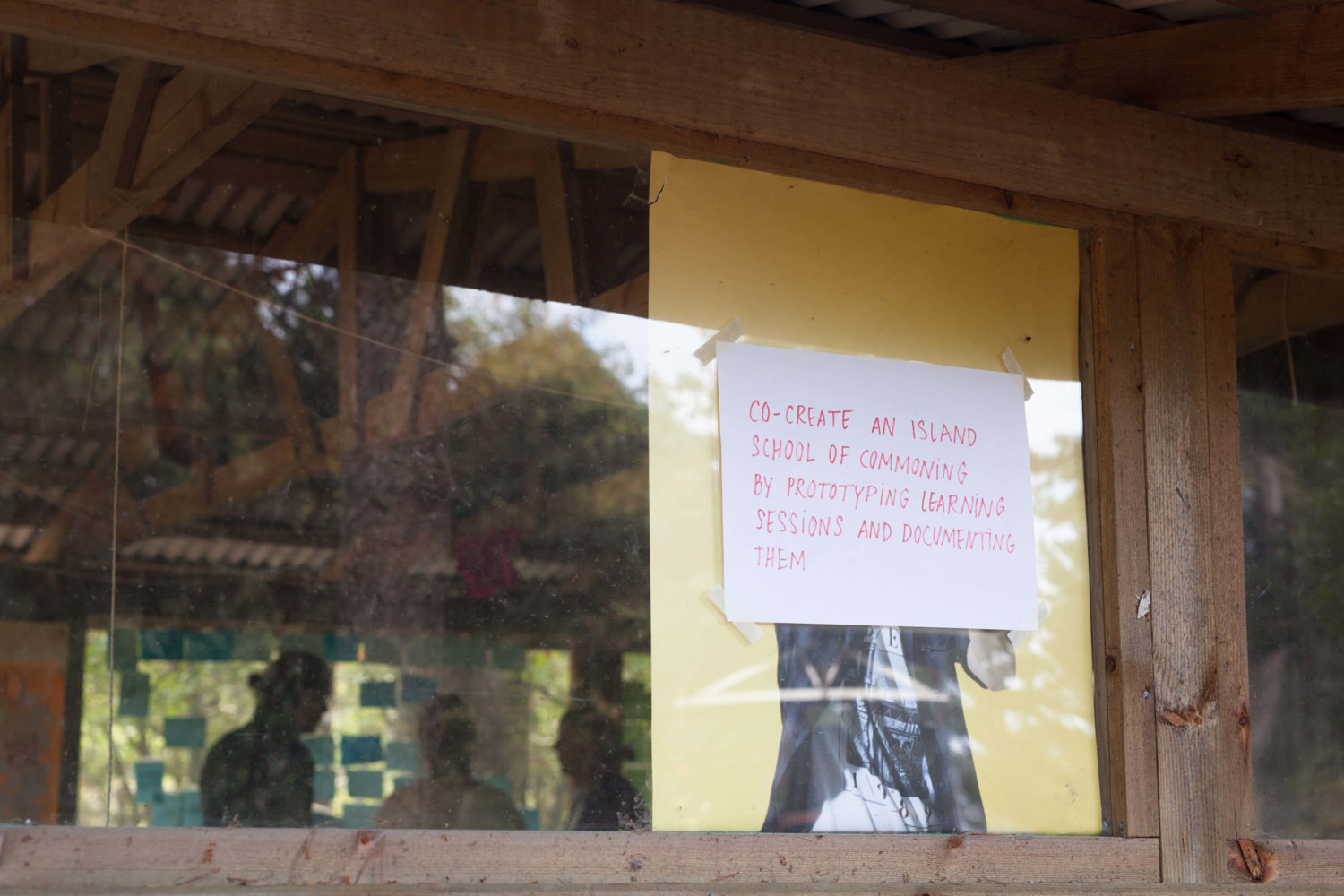
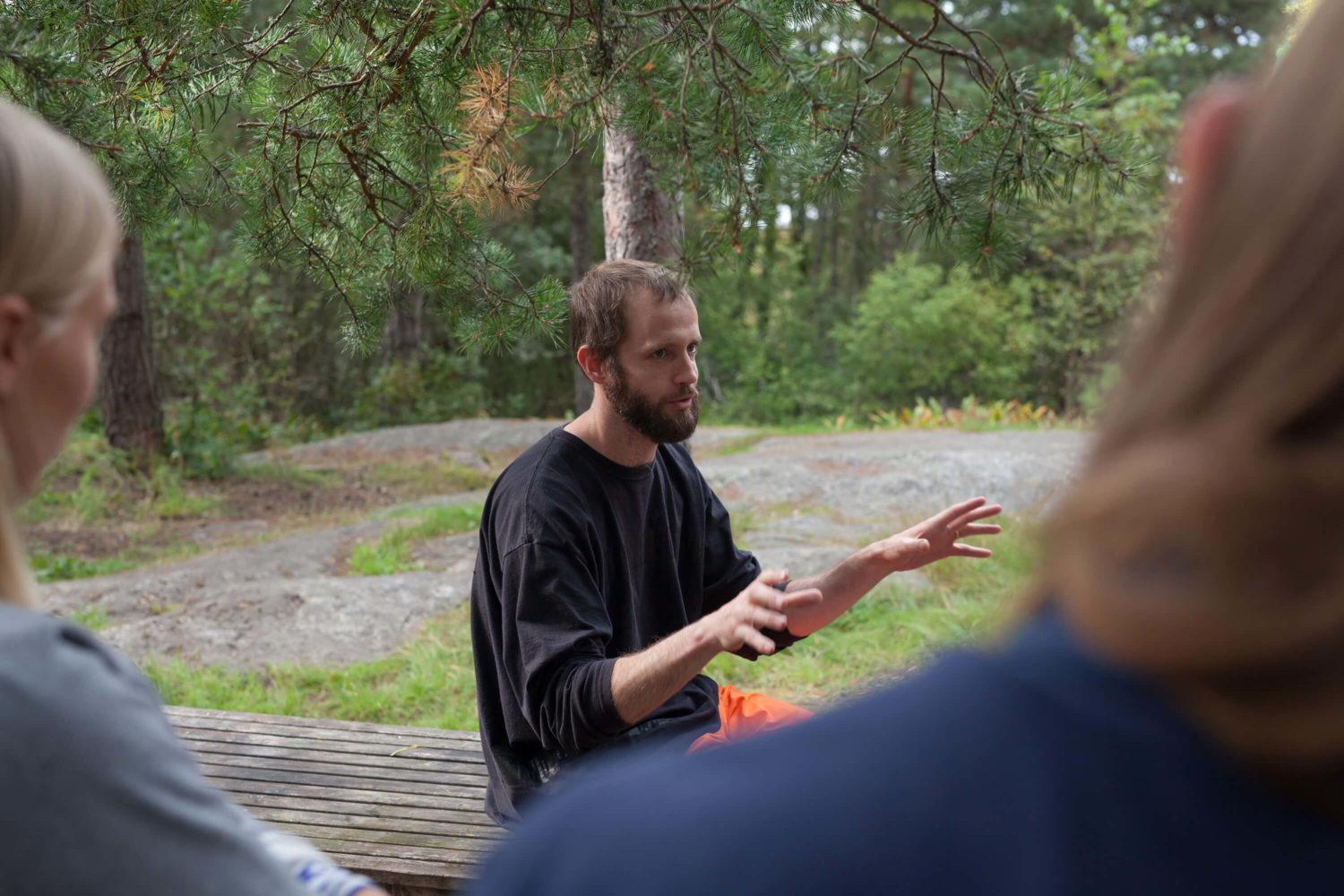
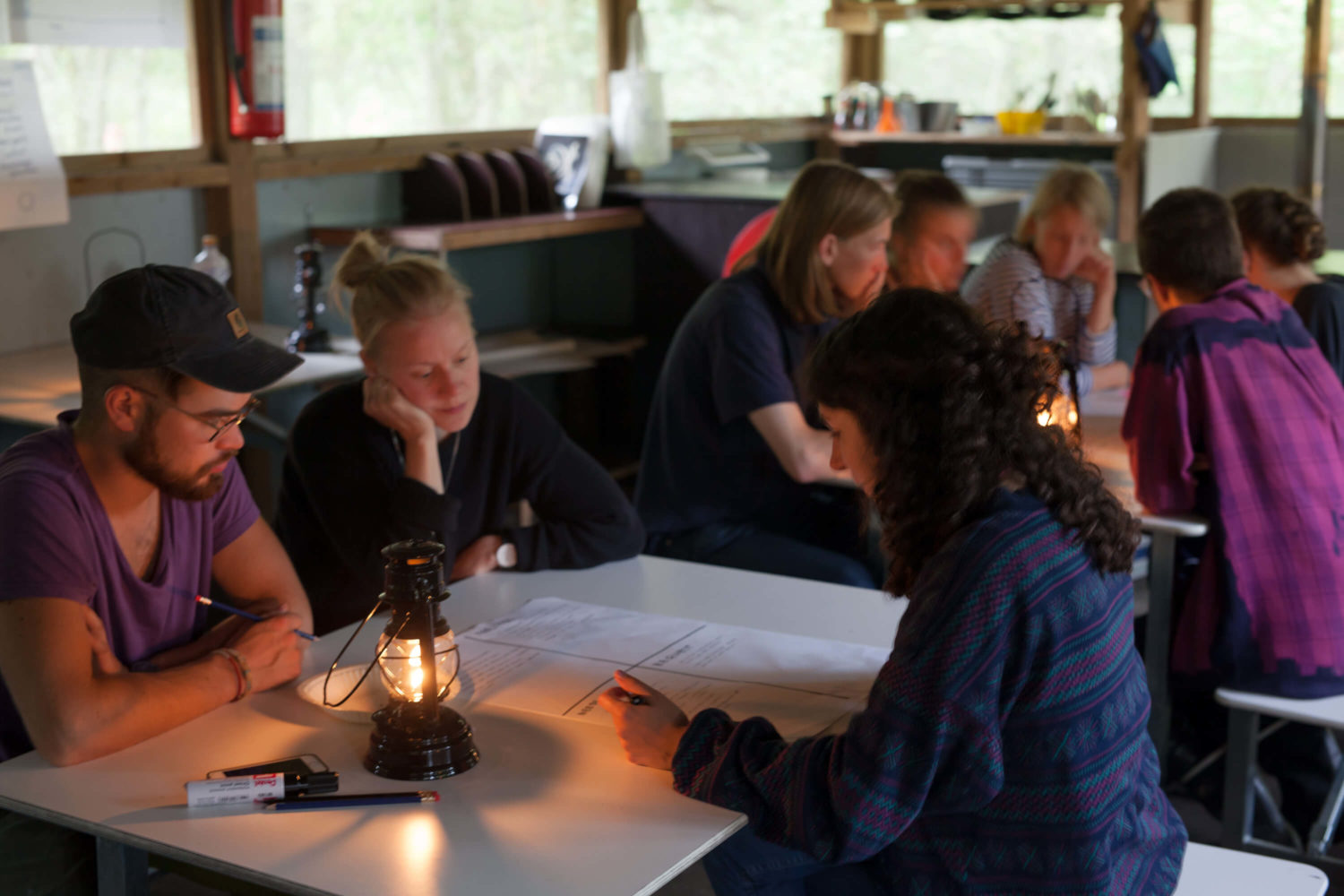
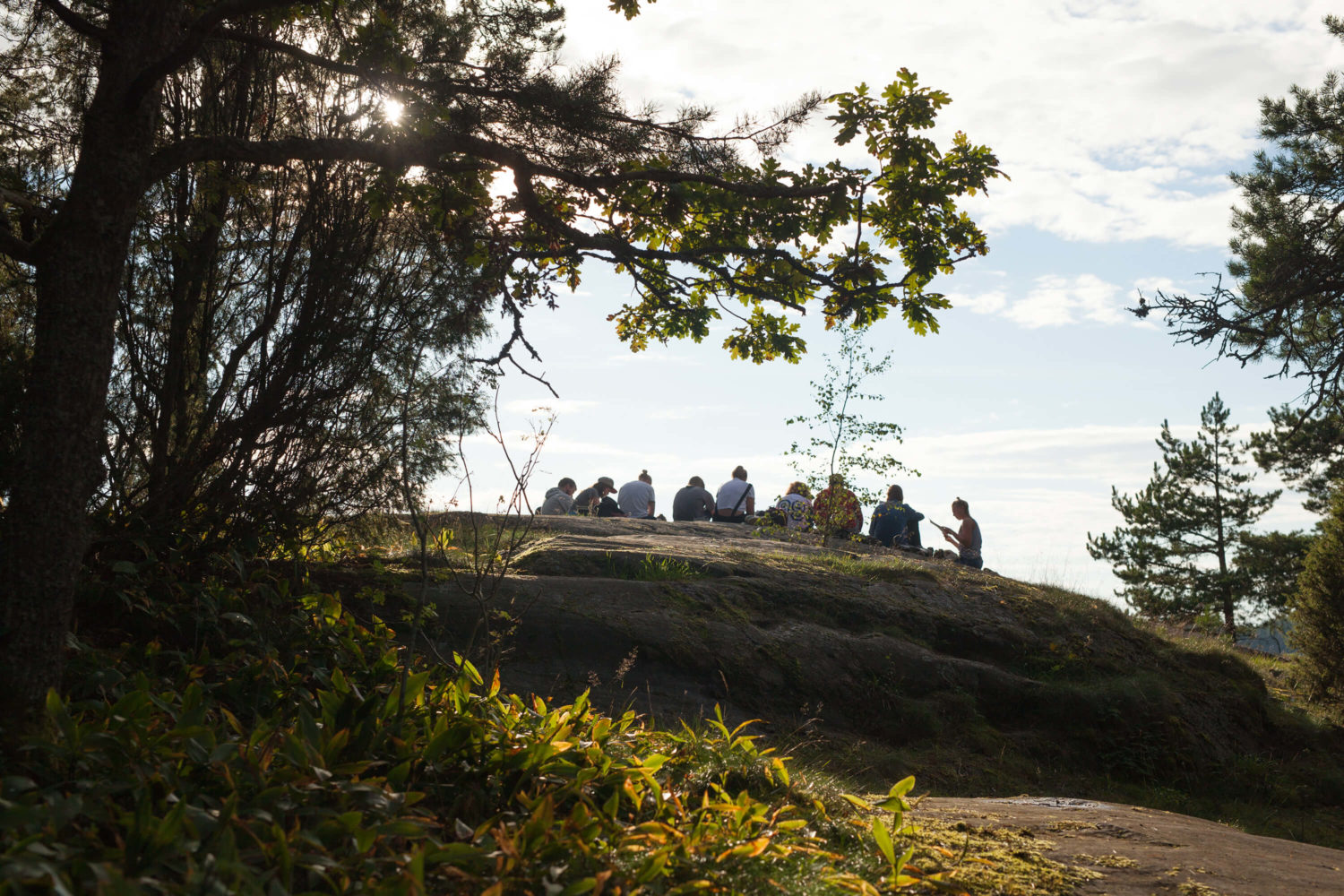
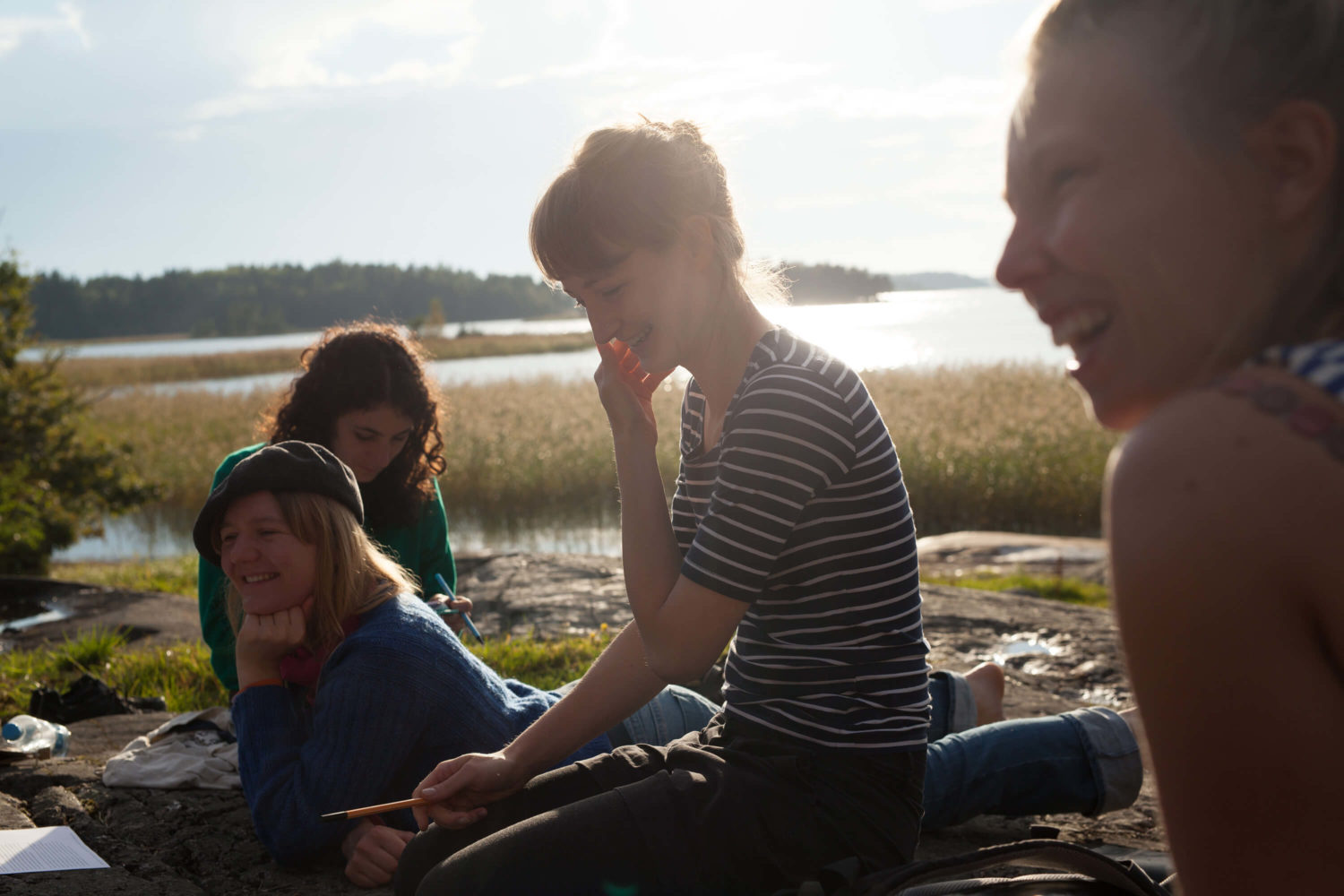
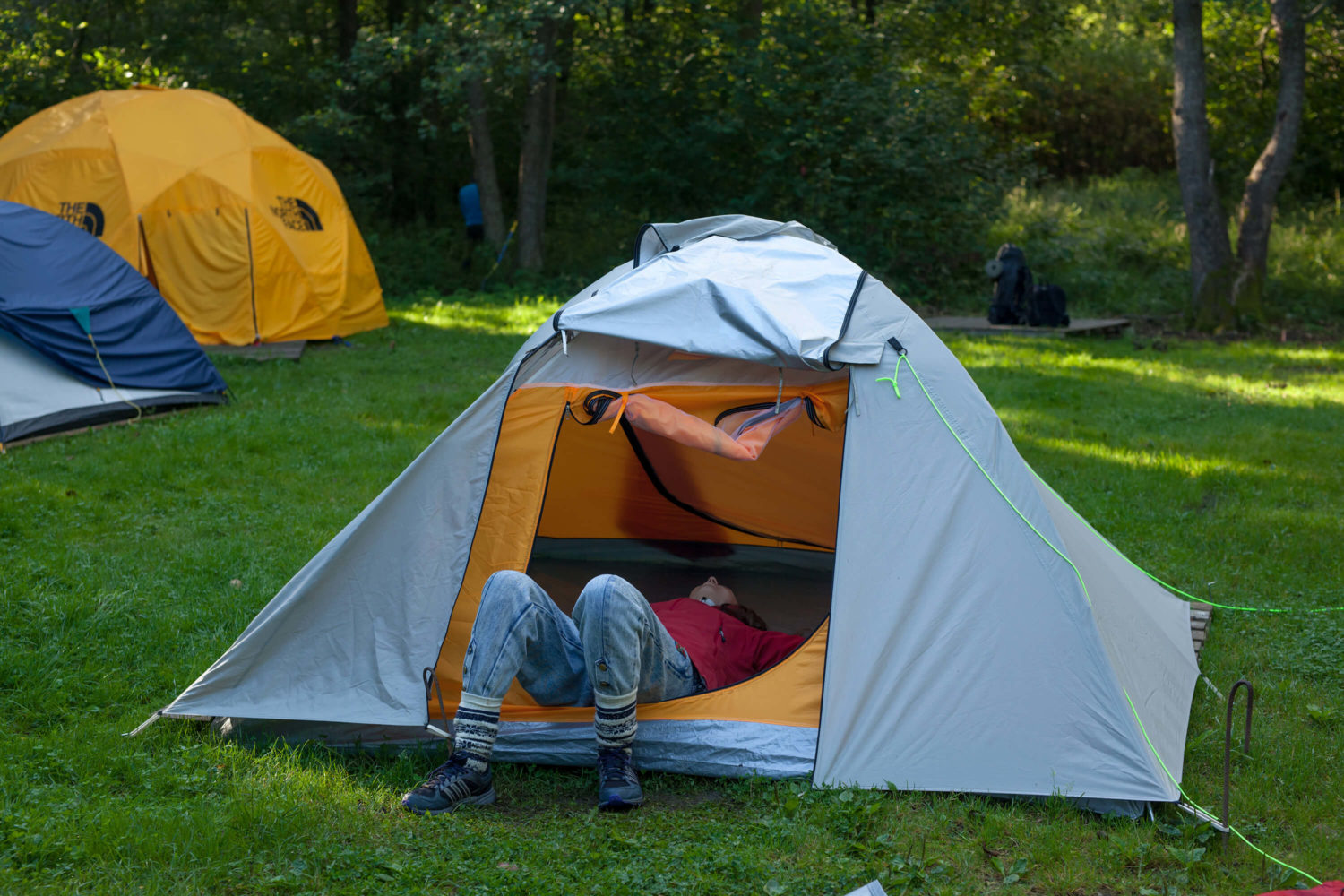
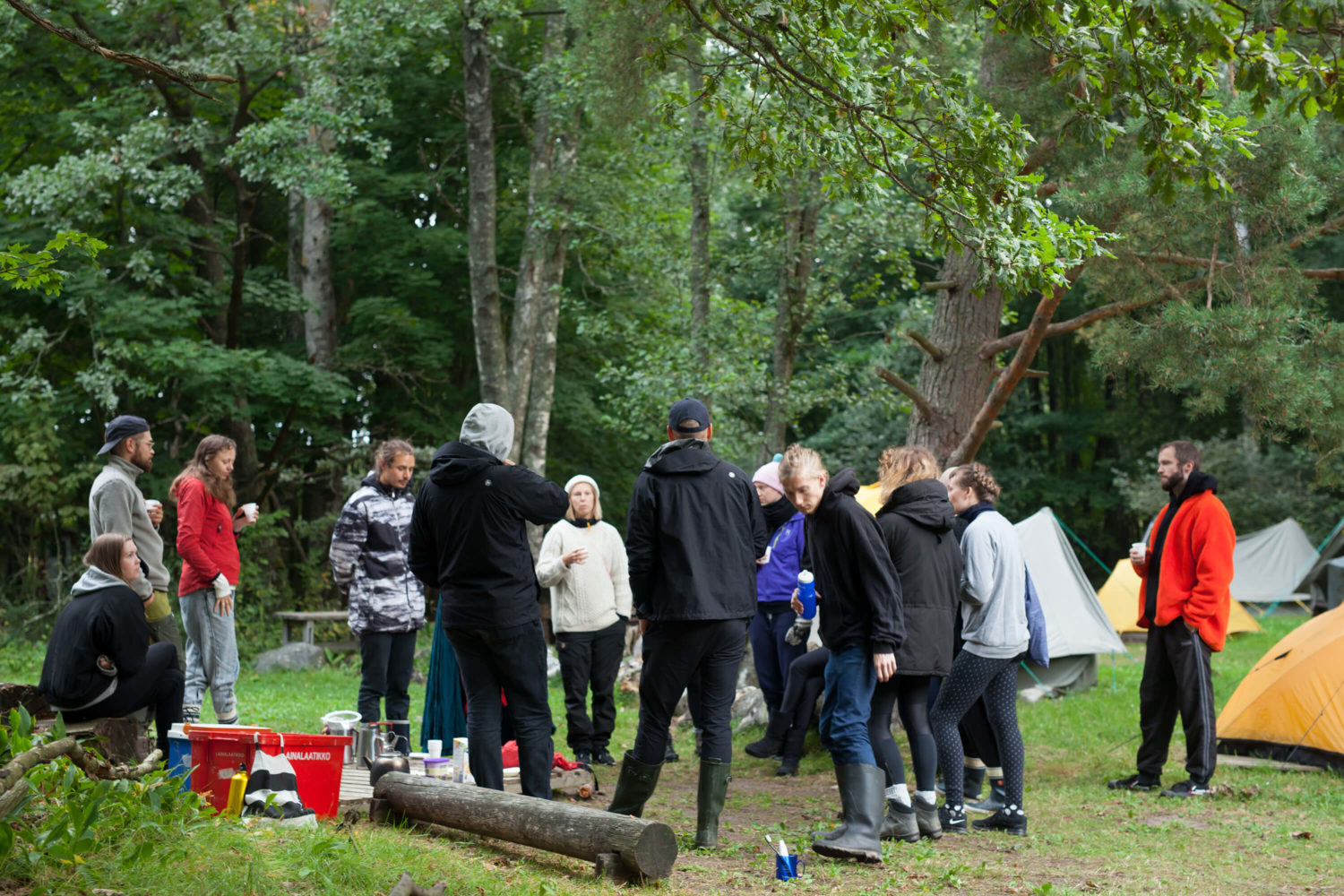
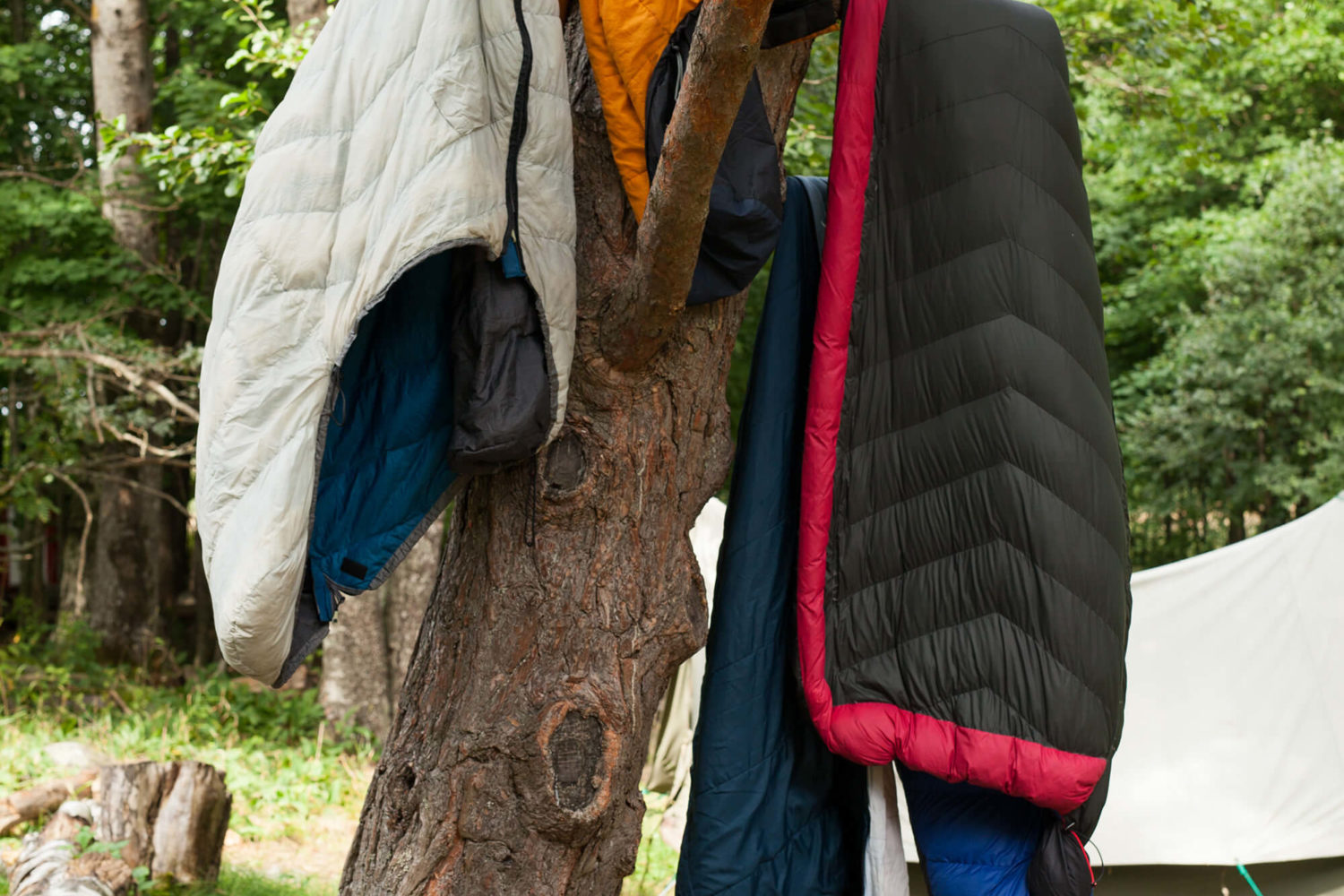
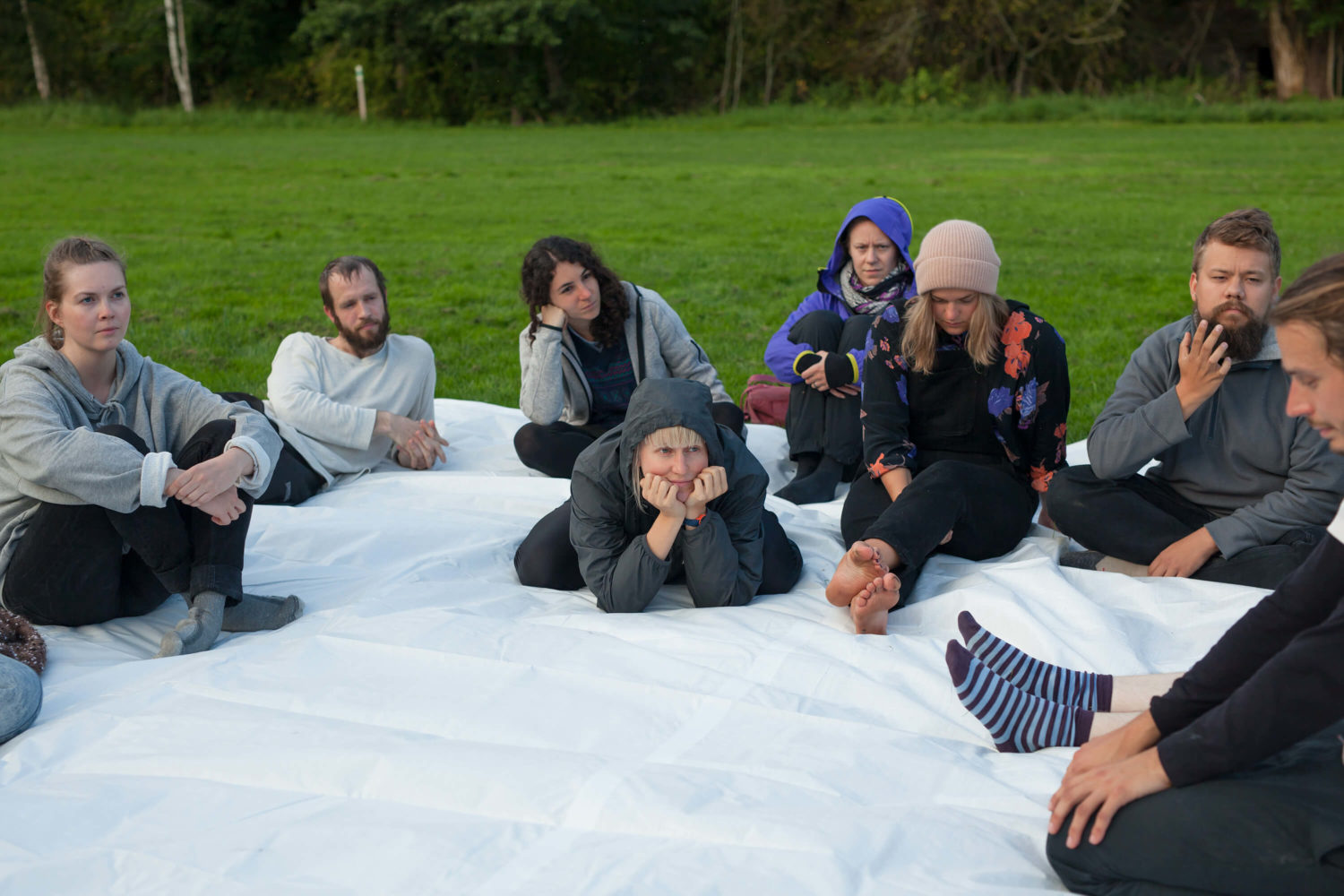
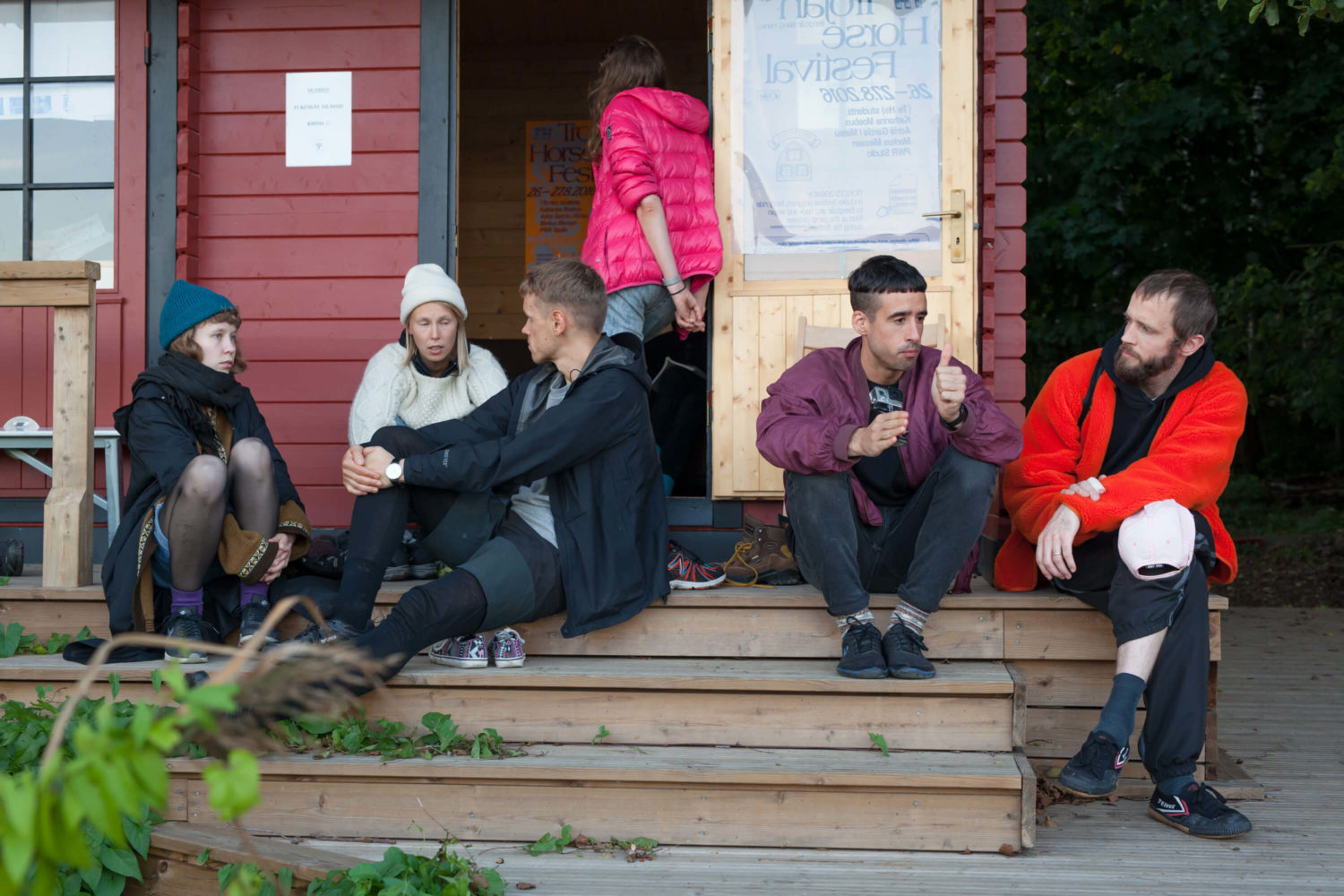
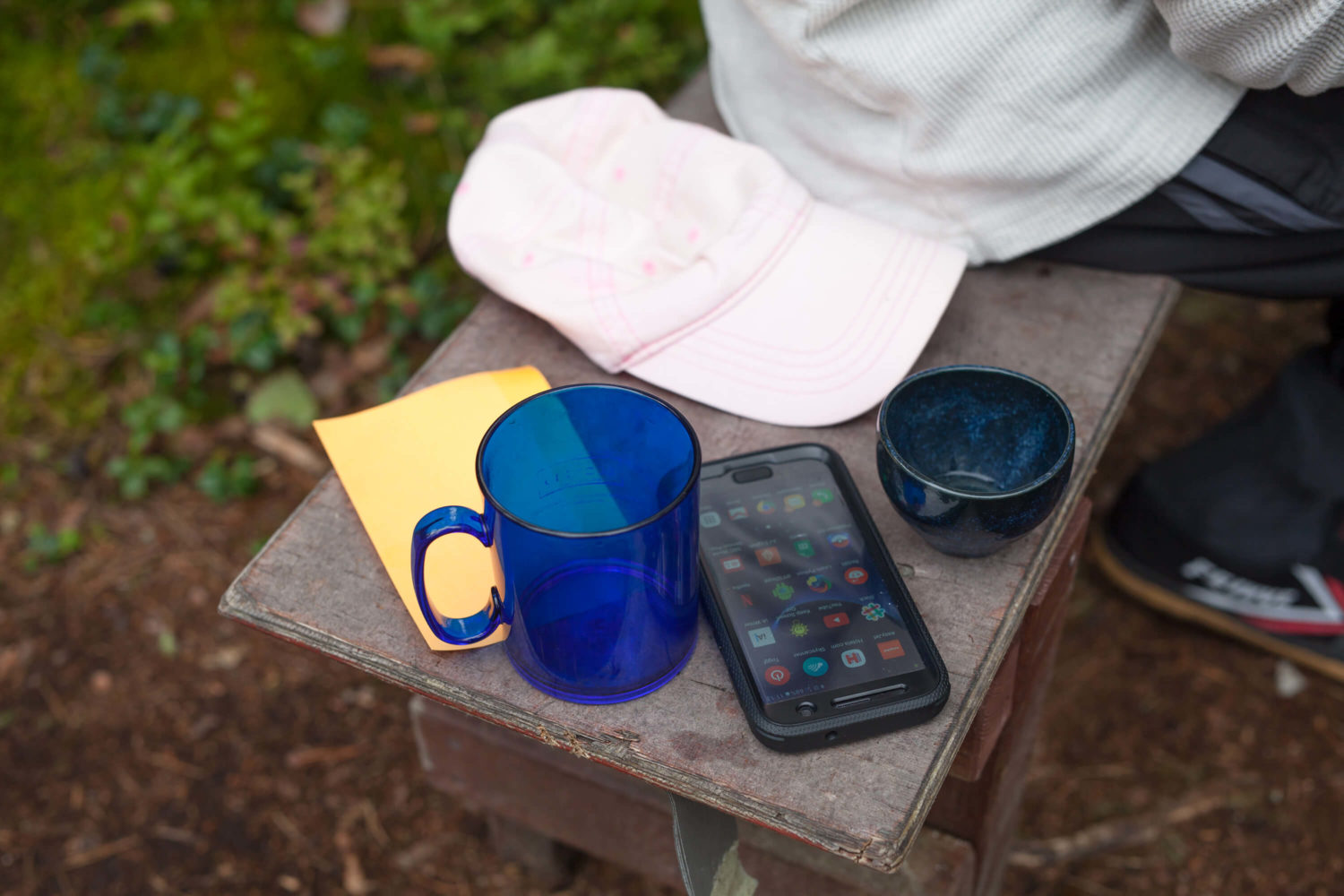
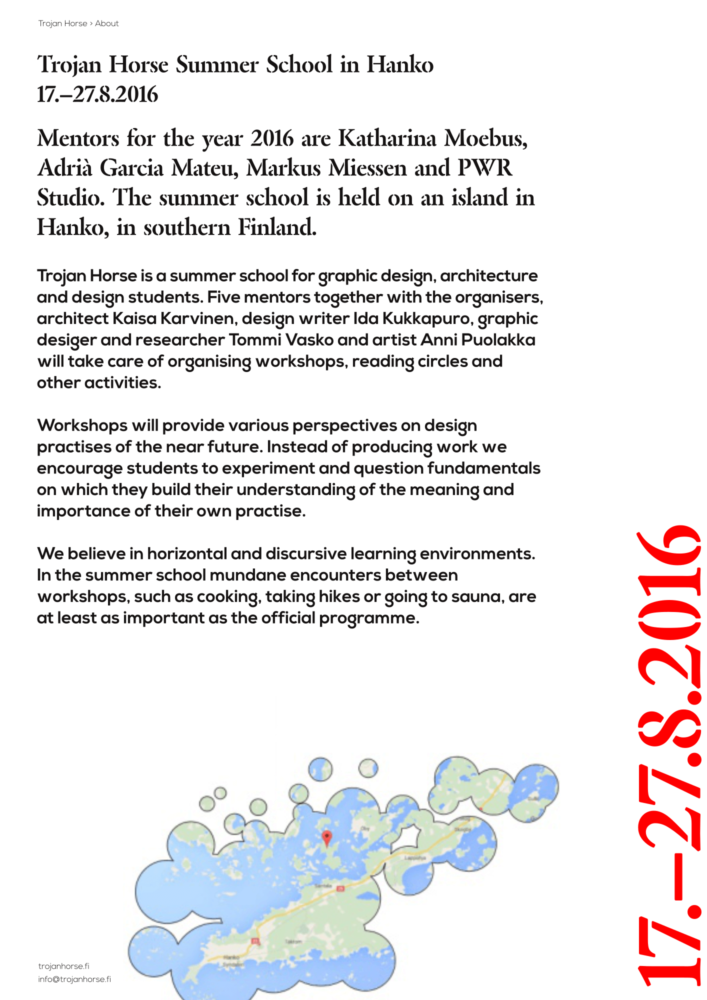
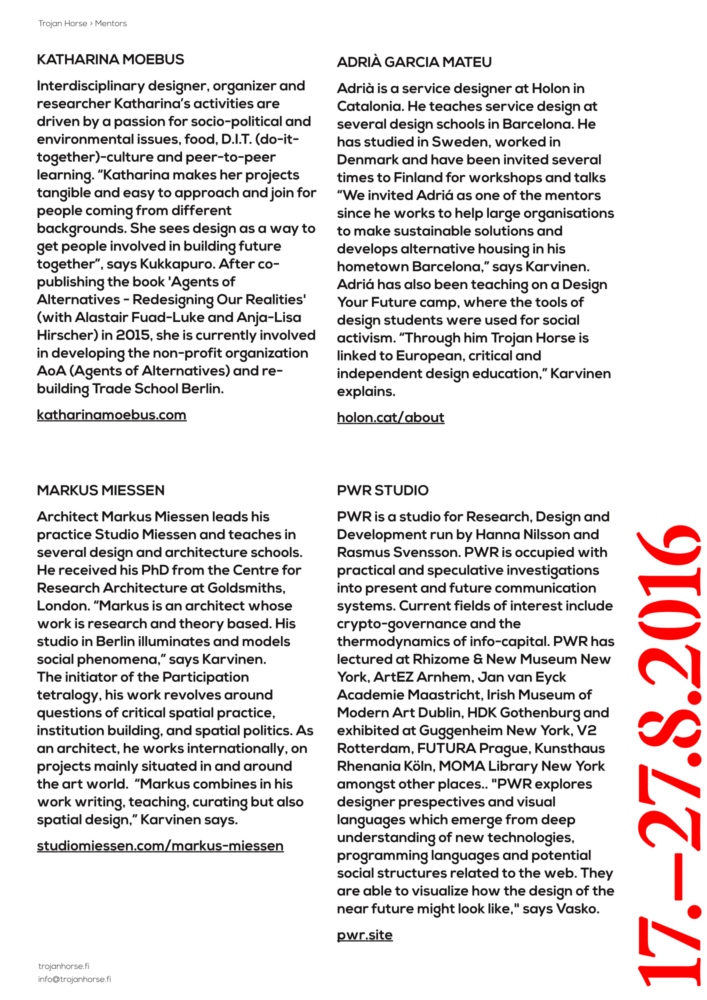
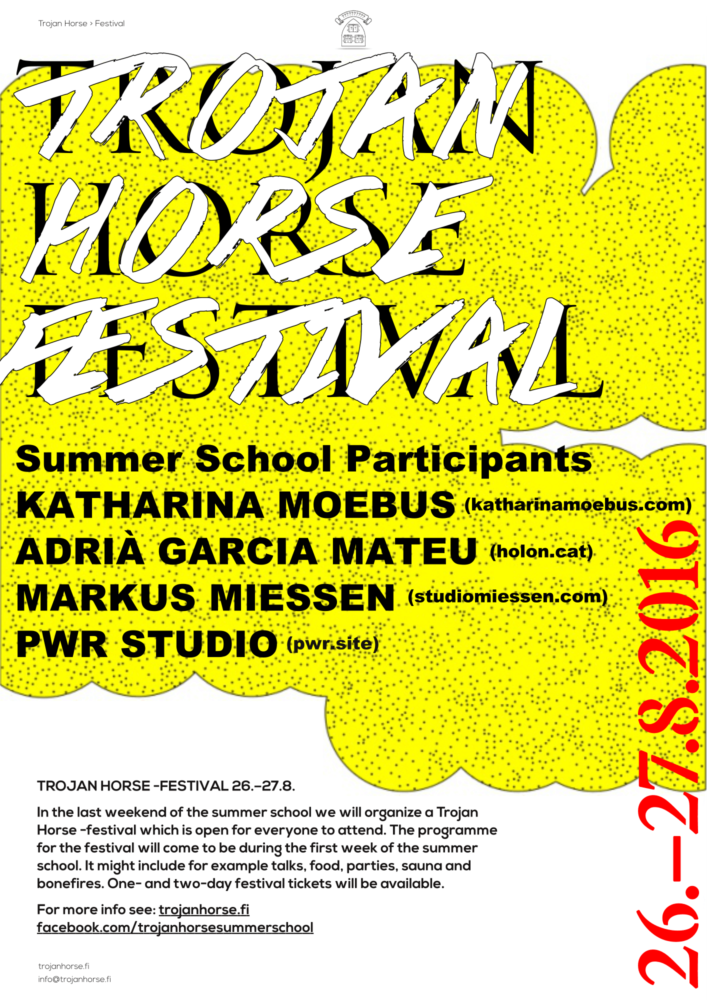
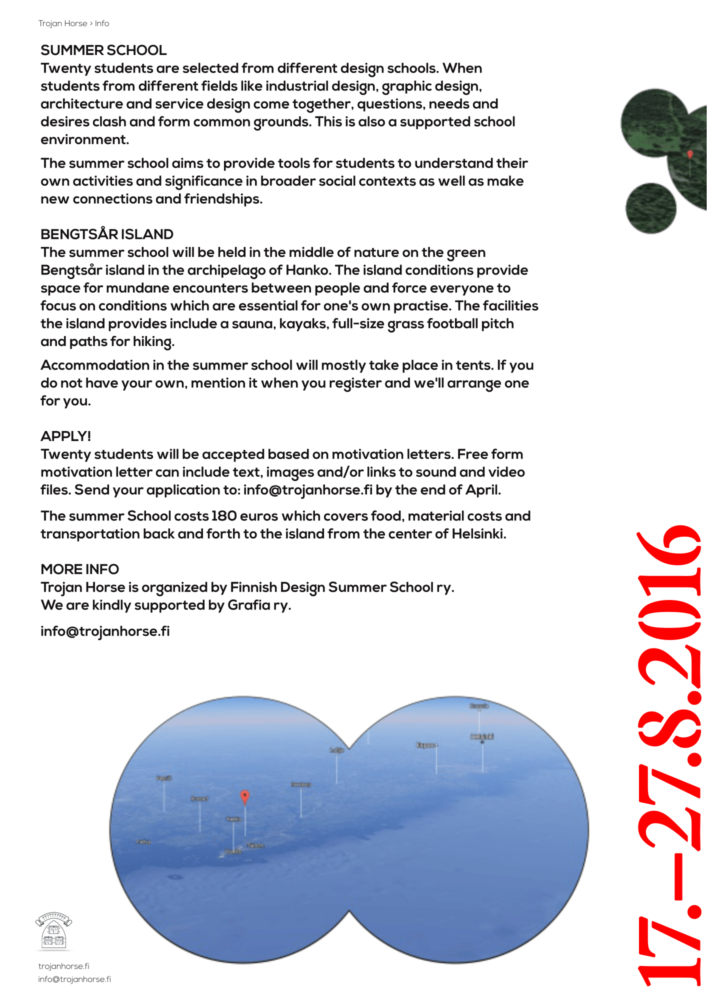
info@trojanhorse.fi / Facebook / Instagram